Ellie Williams: Wildlife Documentaries and The Sound of Nature
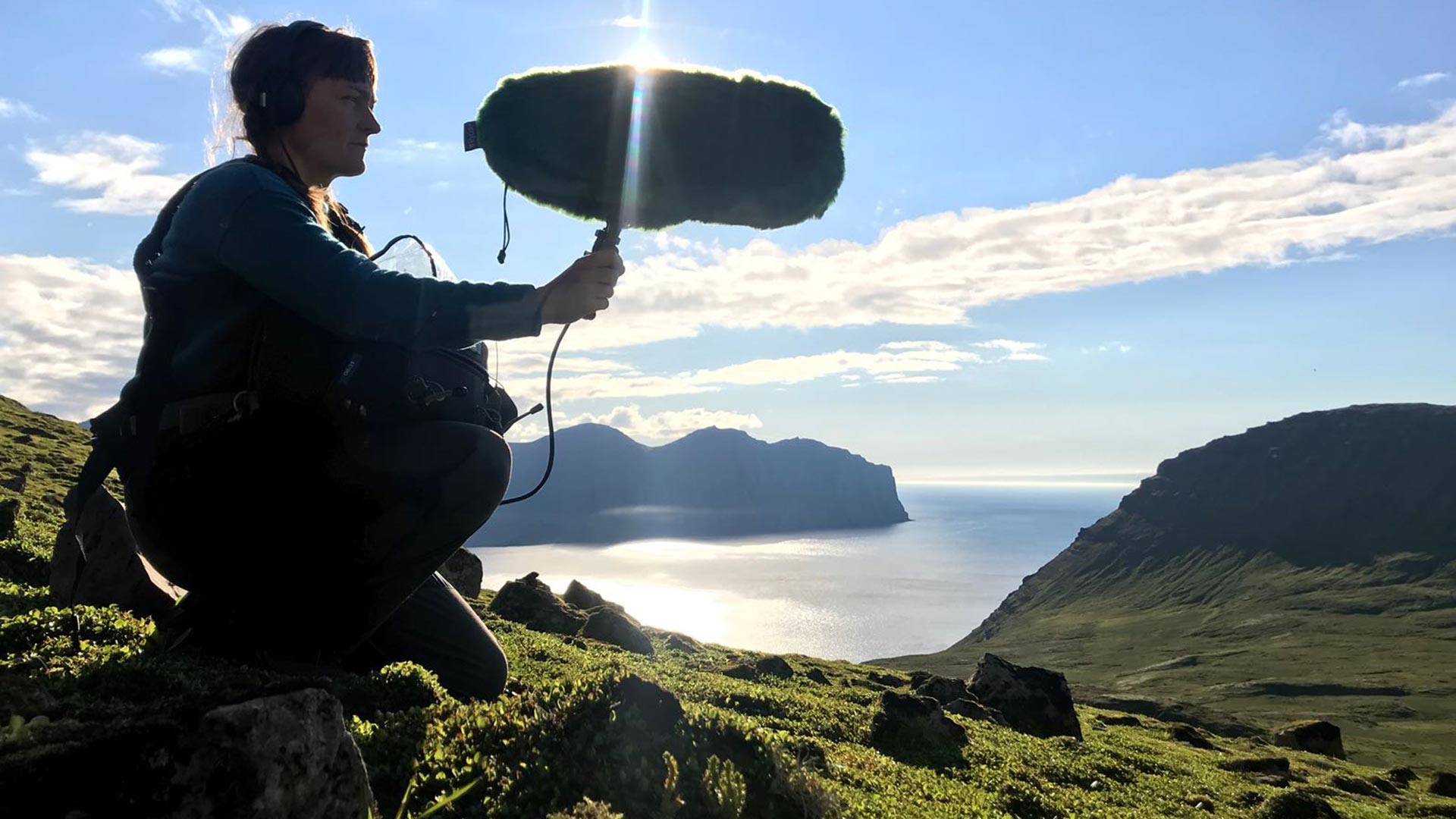
Ellie Williams on a trip to Iceland recording arctic foxes
Ellie Williams is a Bristol-based sound recordist specialising in wildlife documentaries. During her career she has camped in deep snow, climbed her kit up craggy ridges at the edge of the Arctic Circle, filmed alongside fluking sperm whales and enjoyed a hug from an orangutan. In her spare time, she likes heading on adventures into nature with her family, catching live music and recording musicians in fields... Naturally we jumped at the chance of finding out more about her and her experience chasing sound around the globe:
Can you tell us a little bit about your background and what first attracted you to the world of sound?
Like so many recordists, my awareness of sound evolved through music. There were all kinds of instruments lying around the house as I grew up so I’d spend hours playing and experimenting and eventually settled on the bass guitar. Although music was what I wanted to do more than anything at that stage, I hadn’t studied theory to a high level so went on to do an Arts degree.
Whilst at university, I gigged a lot, way more than I should have been studying, and that opened my eyes to the world of studio and live sound. The keyboard player of a band I was in (breakbeat with sitar loops and live tabla) owned a studio. I began to assist him and this experience led to a stint working in stage sound at music festivals.
You've been involved with the BBC Natural History Unit (NHU) and a lot of documentary work throughout your career. Did you set out specifically to do this type of work, or was there more of a natural progression toward this genre?
It was definitely a natural progression. I grew up on an average cul-de-sac but my mum was really into wildlife and David Attenborough. We’d often head off into the great outdoors - I remember her taking us out, sleepy, at dusk to listen to nightingales and we’d leave trails of arrows for each other through the woods. So, from childhood, nature has always been a big part of my life.
After studying, I travelled out to the Peruvian Amazon to volunteer on a nature reserve. The biodiversity there was mind-blowing and I was most aware of it in the soundscape. At dawn and dusk the air was electric and the sounds incredibly loud with a wonderful depth to them. I’d listen immersed in the chorus - bird calls, howler monkeys, cicadas - and came home as charged-up about the natural world as I was about sound. After some months, I landed a job at the BBC NHU. I worked on wildlife documentaries and, through this, went on remote shoots all over the world.
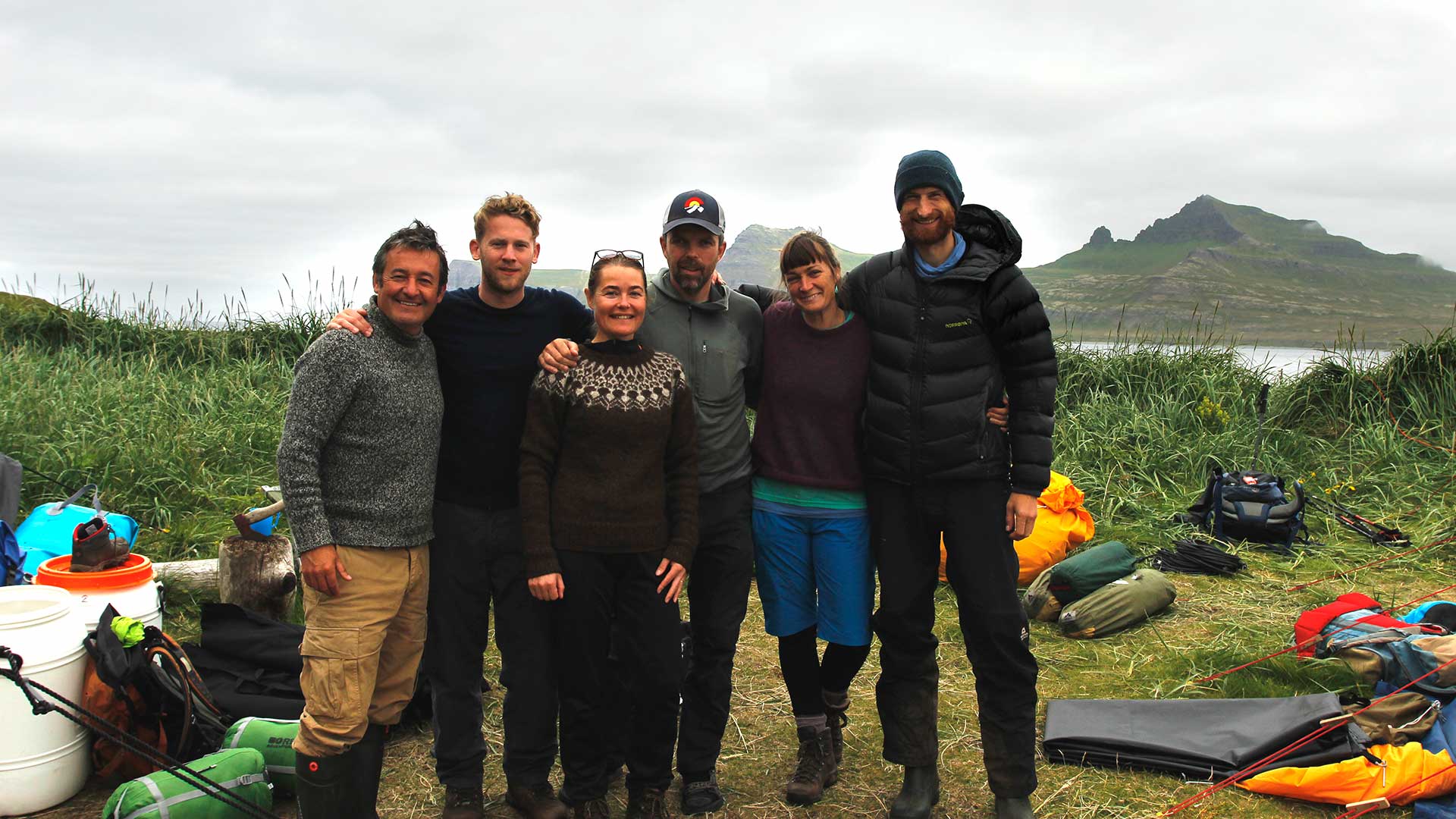
BBC NHU crew out filming arctic foxes in Iceland
On location, I was always fascinated by the role of the sound recordist. They were the one I most admired - technical, creative, even-tempered and always good fun. I wanted to do this more than anything. I was sent to set up a satellite hub in New Zealand for a BBC2 series called South Pacific. Camera ops, researchers and producers would travel in, collect equipment and fly out to remote islands and atolls to film the unusual wildlife there. Along with the series camera kit, there was a basic sound kit (SQN mixer and 416). I used to look longingly at the peli case - It sounds counterintuitive but I wanted to become a field recordist so much that it stopped me from opening it.
Back home, I was assigned to a remote Outside Broadcast team on the Springwatch/Autumnwatch series. I was on the road for months and confided in the sound recordist over a beer how much I wanted to learn the craft. He generously took me under his wing. I’d accompany him on his missions - at dawn he had me commando-crawling over a field to a low cliff-edge, disguised under a camo net, to record singing seals in Orkney and at night out capturing stags rutting in the Cairngorms. These sessions were always followed religiously by a cup of tea on his storm kettle and a tunnocks bar in a field.
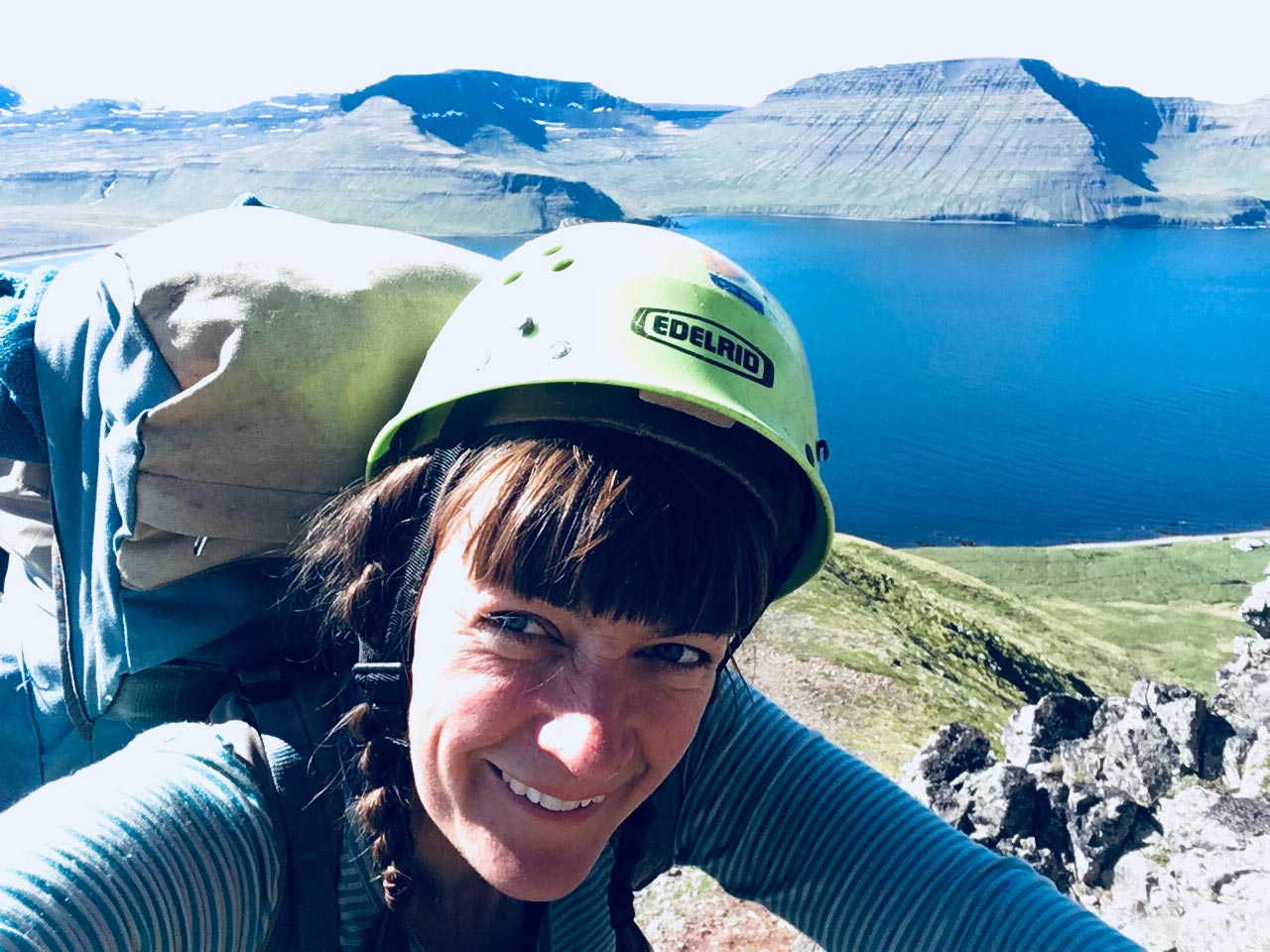
Ellie climbing up to an Arctic Fox den site in Iceland
For the live shows, I’d listen in with him during the broadcast to the presenter. Every time I put his headphones on, the sounds, whether a human voice, animal call or those made by the natural environment, got under my skin and I couldn’t stop smiling. I went on a location sound recording course at BBC Woodnorton and the following year mixed the sound in the remote OB truck. All this gave me the confidence to start recording on my own and step into the freelance world.

Ellie recording atmos in Times Square, NY
Bristol is an amazing city with a ton of culture. What's it like being a sound recordist there?
Bristol’s one of those cities that keeps drawing you back. I’ve tapped into different elements of it as I’ve grown up and it has an exciting energy that keeps it evolving creatively. It’s big for street art, music, independent cinema and has big leafy parks and countryside close-by to escape to.
As the pioneering hub of wildlife filmmaking, Bristol’s been dubbed the ‘Green Hollywood’ and because of this, along with Aardman Animations, it’s been named a UNESCO Creative City of Film. Over the last few years, lots of Indies have popped up around the NHU so the scene has become even more vibrant. Filmmakers and freelancers move between the BBC and the Indies so you’re always bumping into people you know and the degree of separation is small.
Wildlife shoots can be exciting, extreme and intense and so create lasting friendships - for me, the wildlife filmmaking scene in Bristol is one big group of adventurous, lovely people. I’ve recently started tapping into the drama world - The Bottleyard Studios host some big budget productions and the architecture of Bristol and nearby Bath is often used for drama. It’s an exciting place to be in sound.
It looks like you get to travel all around the world to some incredible places. What was the most difficult challenge you've faced whilst recording sound in a remote location abroad?
On the type of shoots I do, it’s the environment that usually throws the biggest challenges. I filmed with a crew in Kenya a couple of years ago for a BBC2 series called ‘Animal Babies: First Year on Earth’. We were following the story of a baby elephant, ‘Safina’, in Samburu National Reserve. The hot and arid environment there can be hostile to the point where you wonder how anything can survive. If the rains come the plains can be lush but if it doesn’t, life is lived on the edge and this causes tension both for the wildlife and semi-nomadic people that live there.
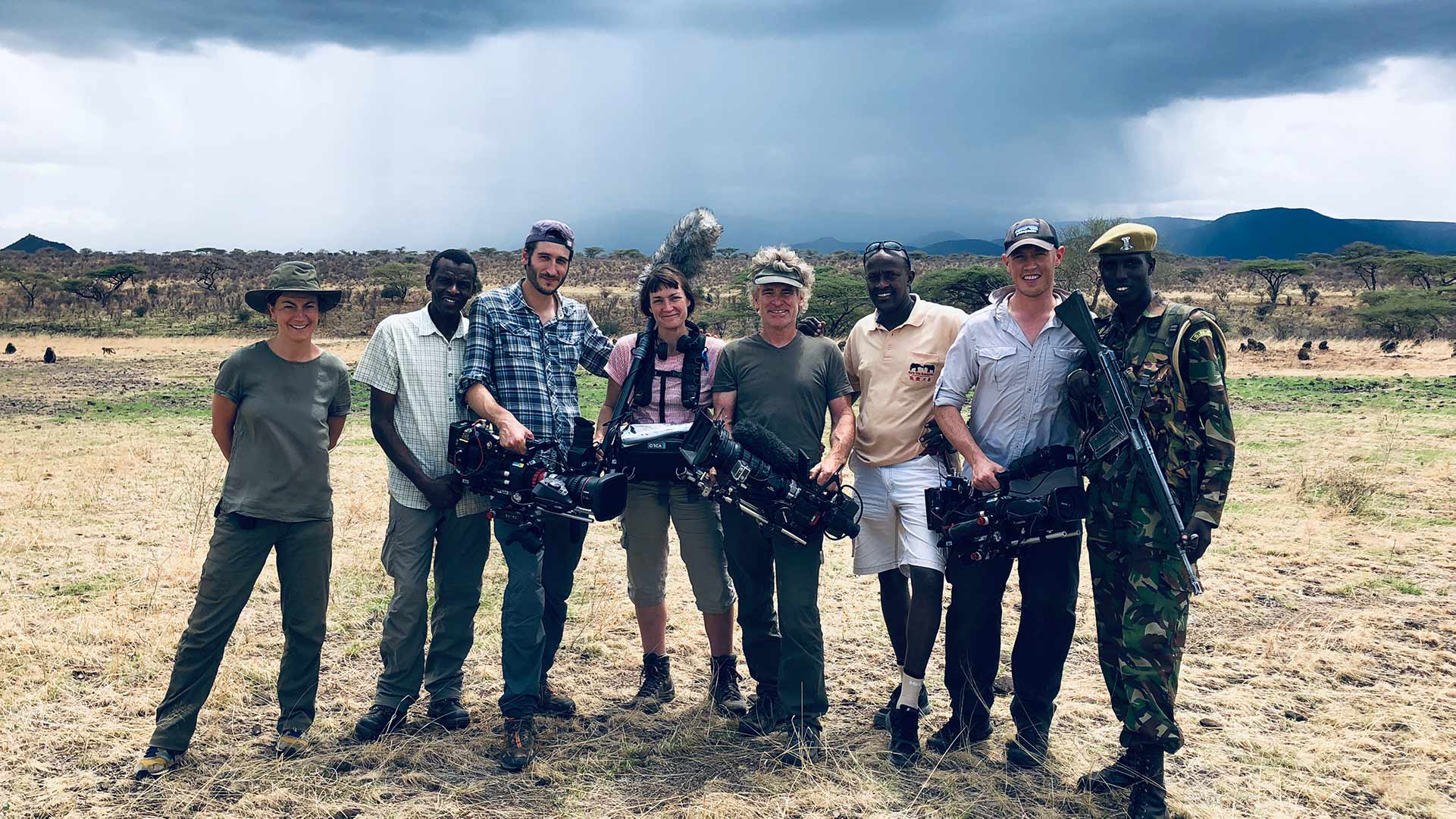
BBC NHU out in Samburu, Kenya, filming eles.
The Samburu tribe live in adobe huts, tap blood from the goats they herd to drink along with their milk and the young men become resplendent warriors. They also carry AK47s to protect them and their animals. Whilst we were there, a rival tribe from the north, the Turkana, raided their cattle. The Samburu retaliated with a counter-raid, some people were hurt and tribal warfare broke out. The two tribes positioned themselves with their guns on opposing hillsides just outside the boundary of the reserve and our elephant herd walked right into the middle of it. It was an anxious few days of waiting as we couldn’t follow. Eventually, much to our relief, our elephant and her herd emerged safely from the bush and we finished telling her story.
What does your typical bag set-up look like when travelling on these shoots; it must be a balance between travelling light and having the luxury of back-up gear?
Yes, for me it’s all about weight and size and having a back-up plan for the main kit that may go down. I like to fit everything in one peli (Storm iM2950) and core recording kit needs to fit into a hiking pack. BBC NHU shoots are pretty much always remote, so there’s no chance of getting replacement gear quickly.
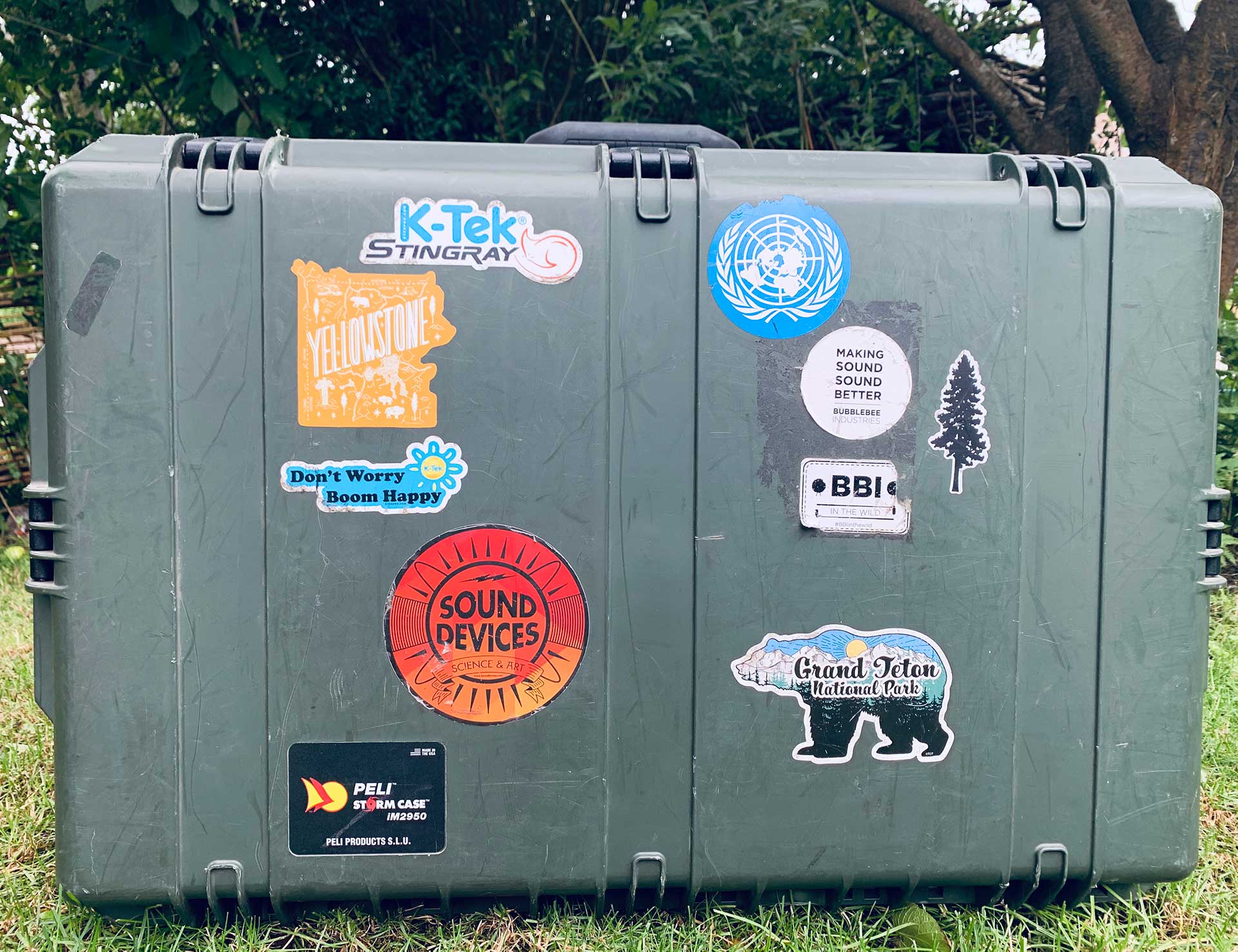
Ellie's travel case has seen a few miles...
My core kit is a Sound Devices 633 with a K-Tek Stingray bag and harness, PSC medium pole (which I love because you can replace the internal cable easily in the middle of nowhere), Sennheiser 8060 boom in a neat Rycote kit 1, Wisycom radio mics with DPA 6060s, Ultrasync Ones for timecode and a Lectrosonics link to camera. I use small Manfrotto and Arri tripods for sit-down interviews and atmoses.
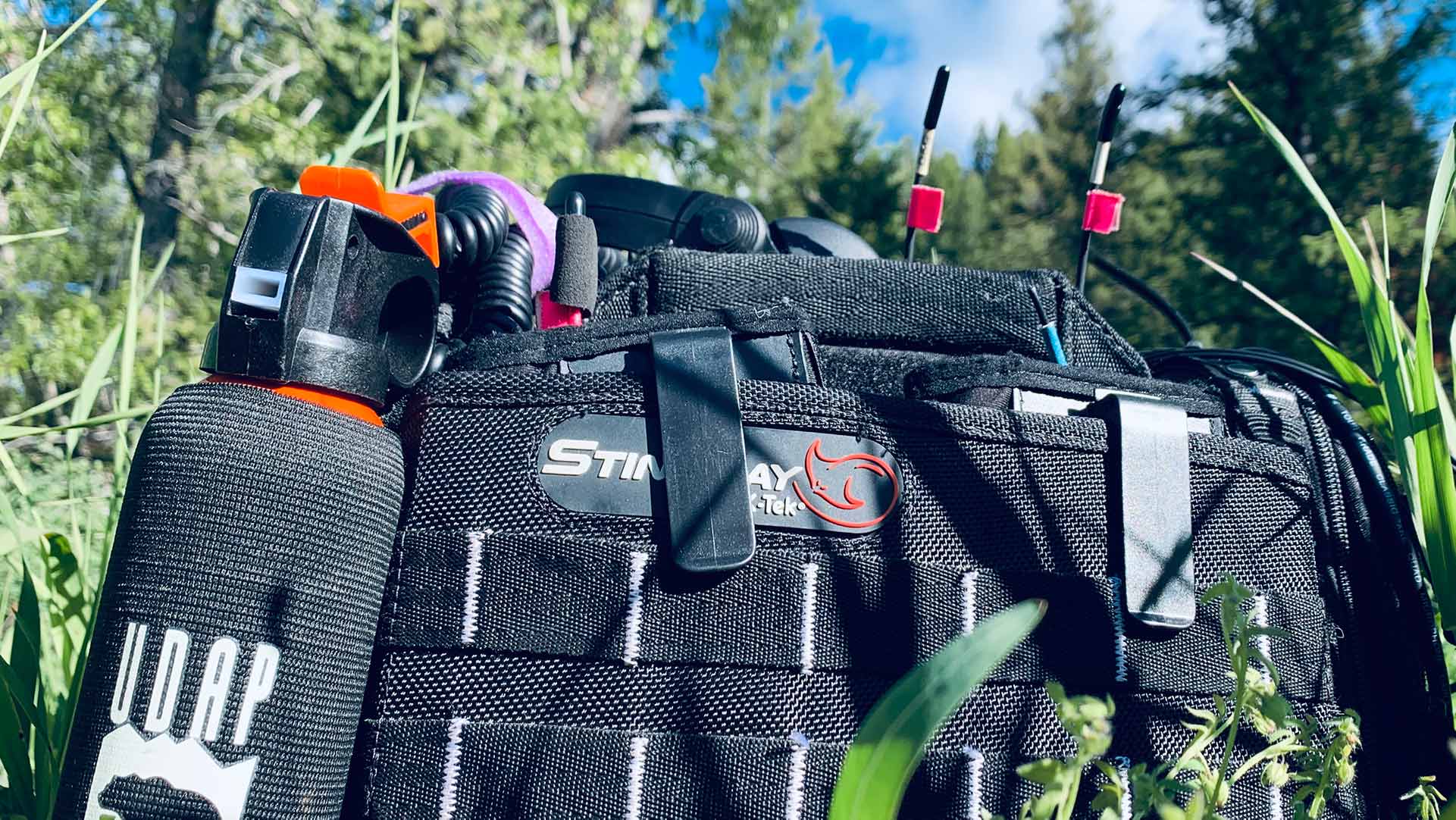
Ellie's K-Tek Stingray bag complete with bear spray (Yellowstone)
I would feel seriously lost without the right accessories. I use DPA 8-way clips, black Windbubbles, Bubblebee Lav Concealers with a Piece-A-Fur, URSA mini mounts, Super Tape & URSA moleskin tape.
If I need something more bespoke, I’ll hire it in. I would very much like to own a DMS surround rig, hydrophones and a parabolic reflector one day soon.
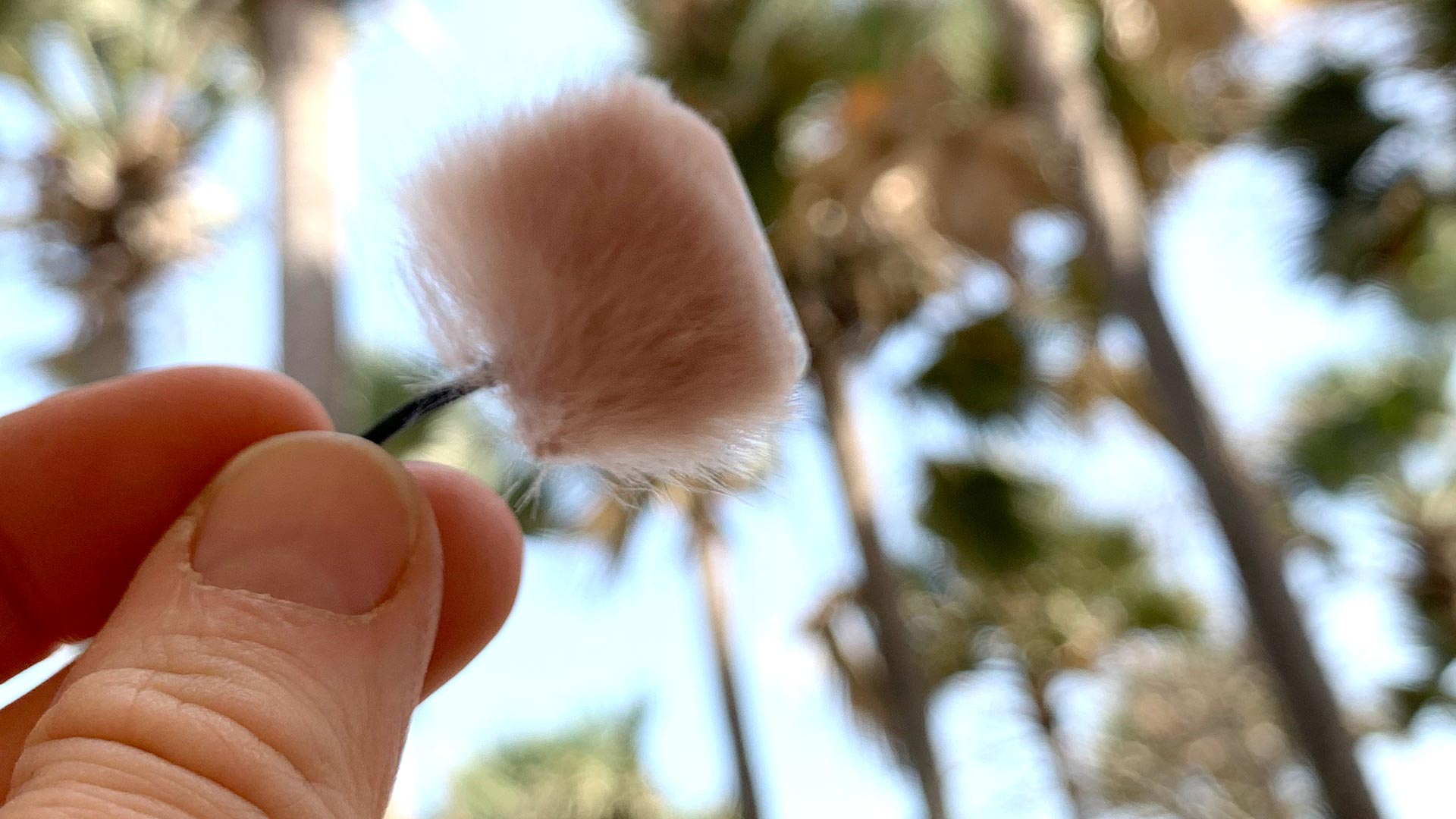
Bubblebee Fur - the Invisible Lav Covers Fur Outdoor and palm trees, Gambia
A couple more essentials - I like to take a portable speaker to set radio mics/wireless link up (and listen to Cery Matthews on 6Music wherever I am which is the closest thing I have to religion). If I’m going to be in an open 4x4 I’ll take a kikoy to cover my bag when we’re driving to stop the dust getting in and keep the heat off.
You recently went on a doco shoot in Gambia. Can you tell us a bit about this shoot and were there any particular challenges?
I wish I could tell you all the details (alas, I’ve signed an NDA). I’ll tell you what I can. We were out filming a feature documentary about a chimpanzee with an unbelievable story. We flew out on 24th Feb and, in the run up to this, Covid was taking hold in Italy so it was getting closer to home. On the way to the airport, the producer’s husband, who works for the European Space Agency, called as they had just stopped all international air travel (which was unsettling). We agreed to carry on, were handed masks and hand sanitiser and headed to catch our flight.
As we arrived in Banjul we had our temperatures taken on the boiling hot tarmac of the airport. We filmed in the capital city for the first few days but kept in close contact with production who were sending us daily updates. Just as we were about to head up the Gambia River to an island sanctuary for chimps, Britain was in the news with its first case and the coronavirus was spreading fast in Europe. Our main fear was that we’d get stuck out in The Gambia for potentially months if travel was suddenly restricted by either country, or end up in a UK quarantine facility.
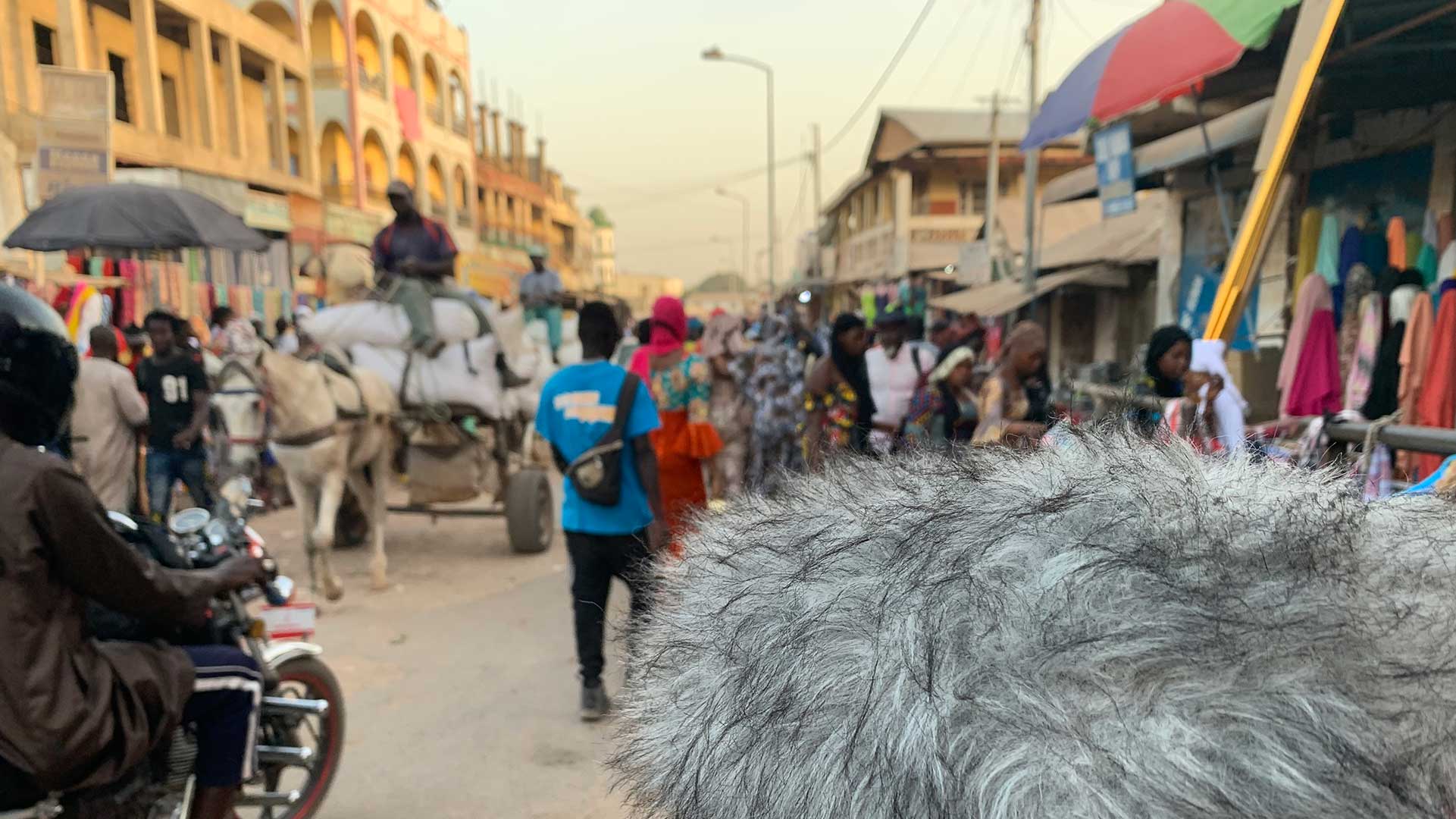
Recording in a market in The Gambia
There was just one case in Africa reported by then and still none officially in The Gambia, but so many of the population live rurally without access to health care that we very much doubted that early cases would be recognised. We had big ‘what if’ conversations.
The contributor we were filming (who was telling the main thread of the story) had taken years of negotiation to grant the access we had now, plus she was elderly and so the chances of returning to film later were very slim. We agreed to carry on and go up river. On 3rd March the first case was reported in Senegal, which shares a border with The Gambia, so the tension rose. We flew out three days later and were very happy to get home. We had originally planned to go a few days later to the States for more interviews but as soon as the US stopped all air travel we knew we weren’t going anywhere for some time. Who could have known it would be this long and counting....
Throughout your career, what would you say has been the most useful advancement in audio technology, to help you out whilst recording great sound?
The biggest game-changer for me has been radio mic transmitters that can internally record. It’s enabled me to record great audio where range wouldn’t be possible. I worked on a shoot where the presenter paramotored his way over the channel from England to Wales. I took a feed from his helmet comms into a Zaxcom. It was slightly nerve-wracking as however many times I checked it was recording I wanted to check again but once he’d taken off that was it. I set the gain fairly low as I knew he’d shout once up in the air as the paramotor is super loud and he’d be excited (as I would be with that wondrous bird’s eye view) and it worked well.
Have you got any advice for someone starting out as a sound recordist?
Networking is essential but don’t worry if you find it daunting. For me, it’s more keeping in contact with people you’ve met/worked with so you stay fresh in their minds. Sometimes it’s a matter of timing, you might send a hello just as someone’s beginning to organise a shoot. Hopefully you’ll meet some great people so you feel like you’re networking with friends anyway.
Obviously get confident technically but also focus on who you are on location. Be a solid, reliable, helpful, positive person to be in a crew with and you’ll be thought of again.
Don’t worry if you don’t get feedback after a shoot. It’s so rare to get this as the director/producer will go straight into the edit and not get much time to breathe. Assume you did a grand job.
Mentors in both location and post sound are essential (Andrew, Nic, Mark, Tamara, Gary - thank you!). You can learn so much, gain confidence, get ideas, ask questions and just enjoy the connection with someone who is advanced and experienced in their craft.
Tap into all the masterclasses online. There is so much good stuff out there, especially recorded during the lockdown.
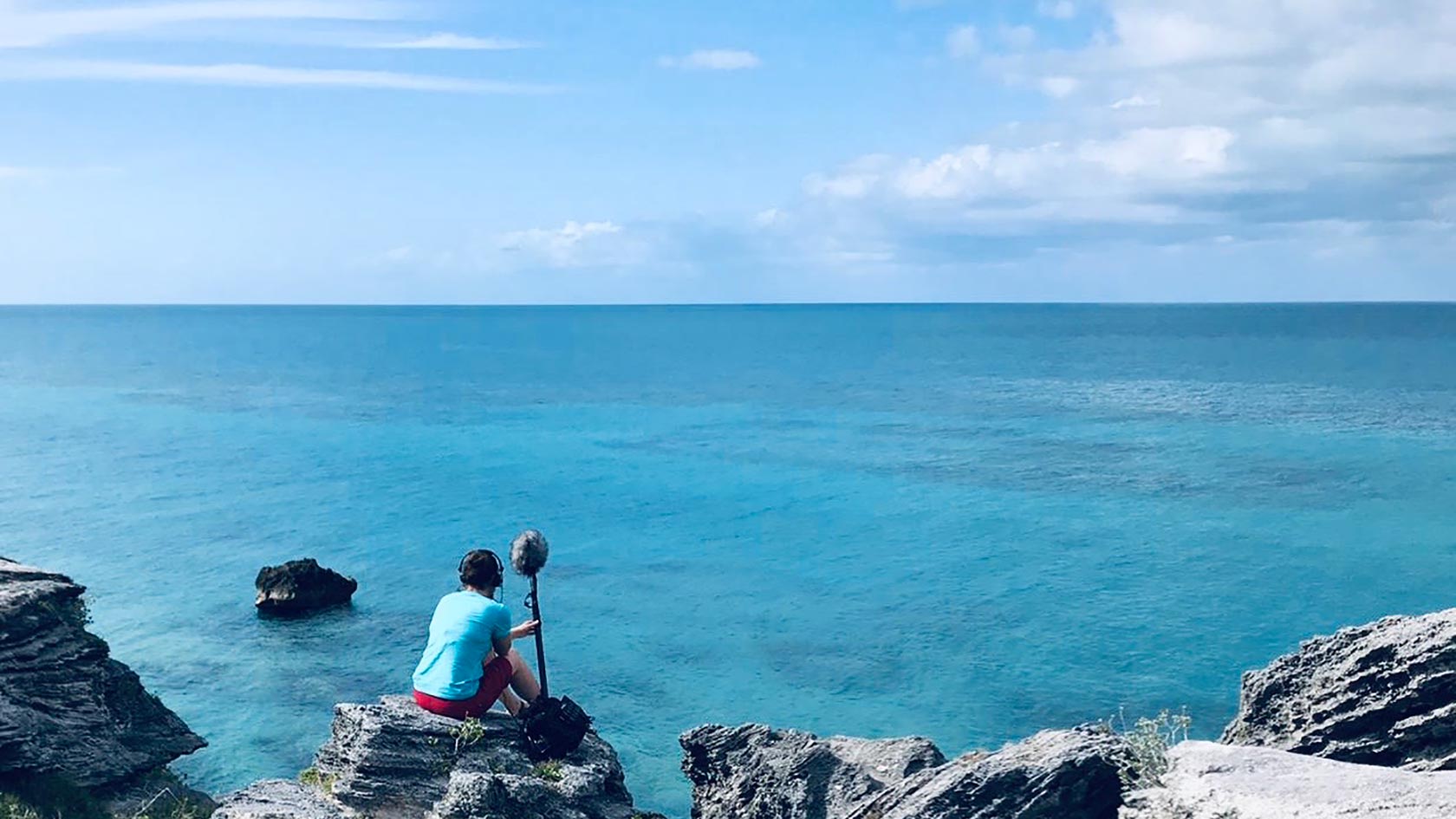
Ellie catching some 'waves' in Bermuda
Some more photos for you as I don’t go much on Instagram…
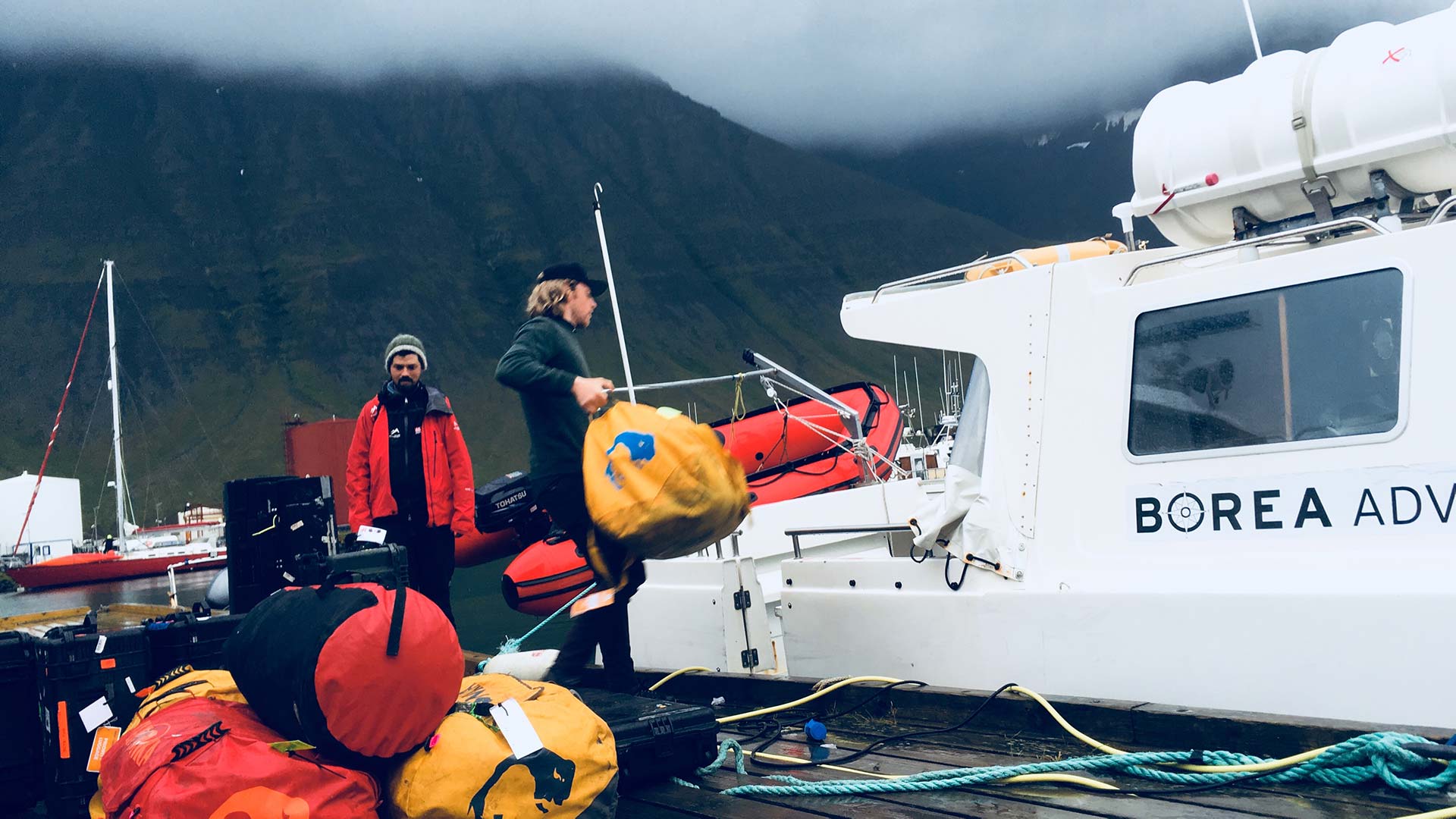
Iceland - loading up in Fjordland
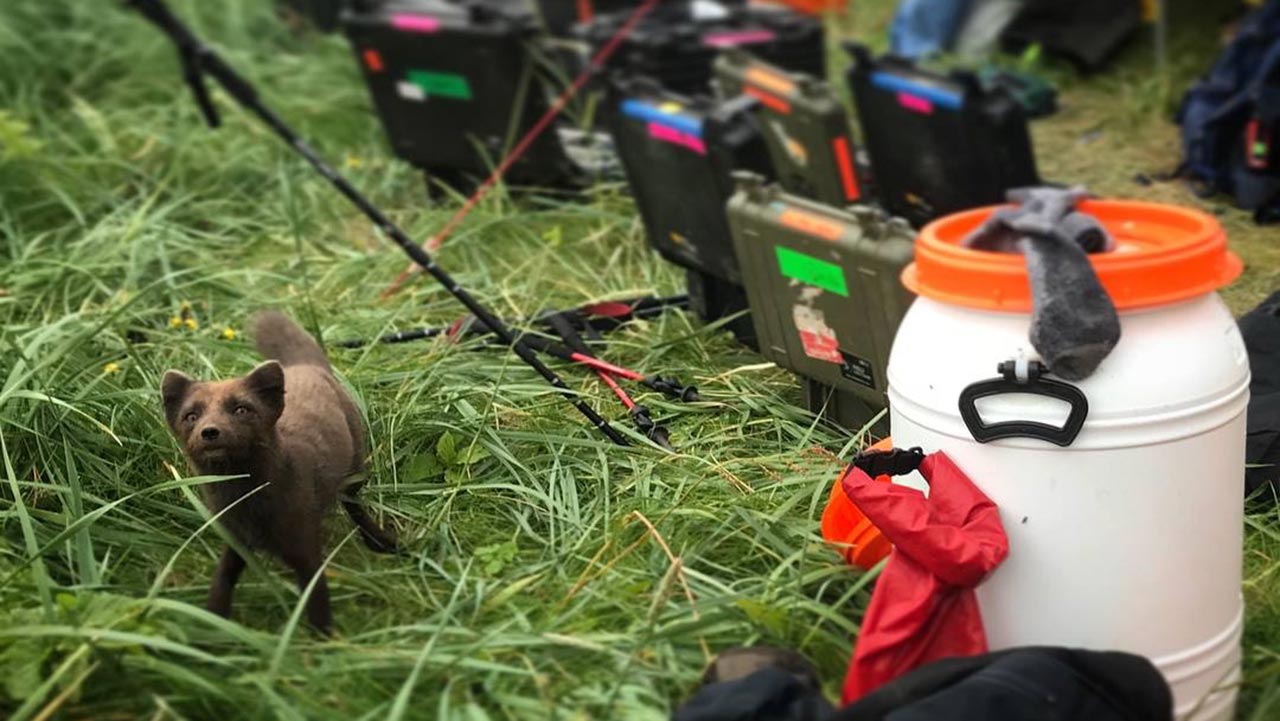
A cheeky visitor at base camp whilst filming arctic foxes.
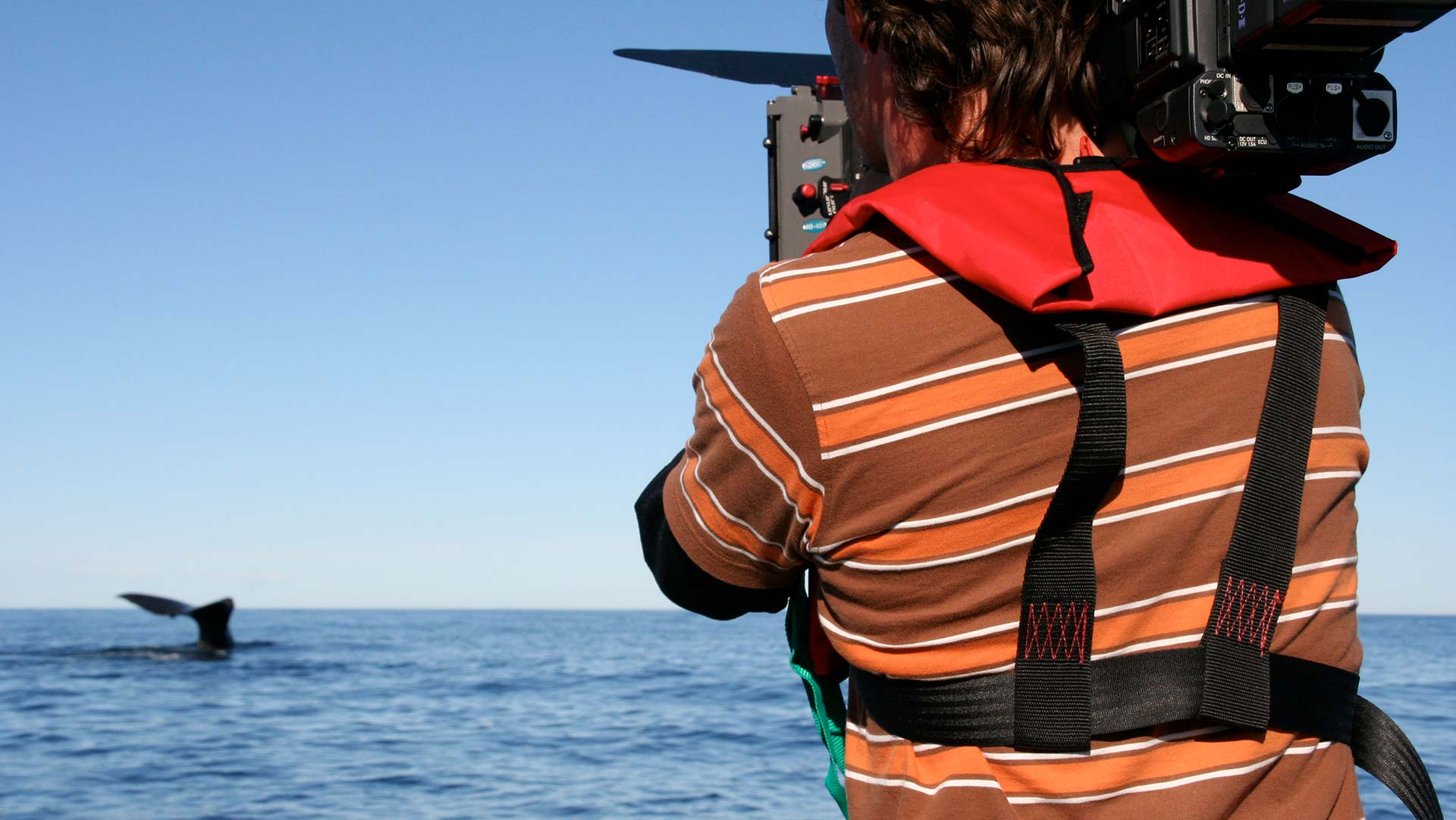
Sperm whale fluke in New Zealand
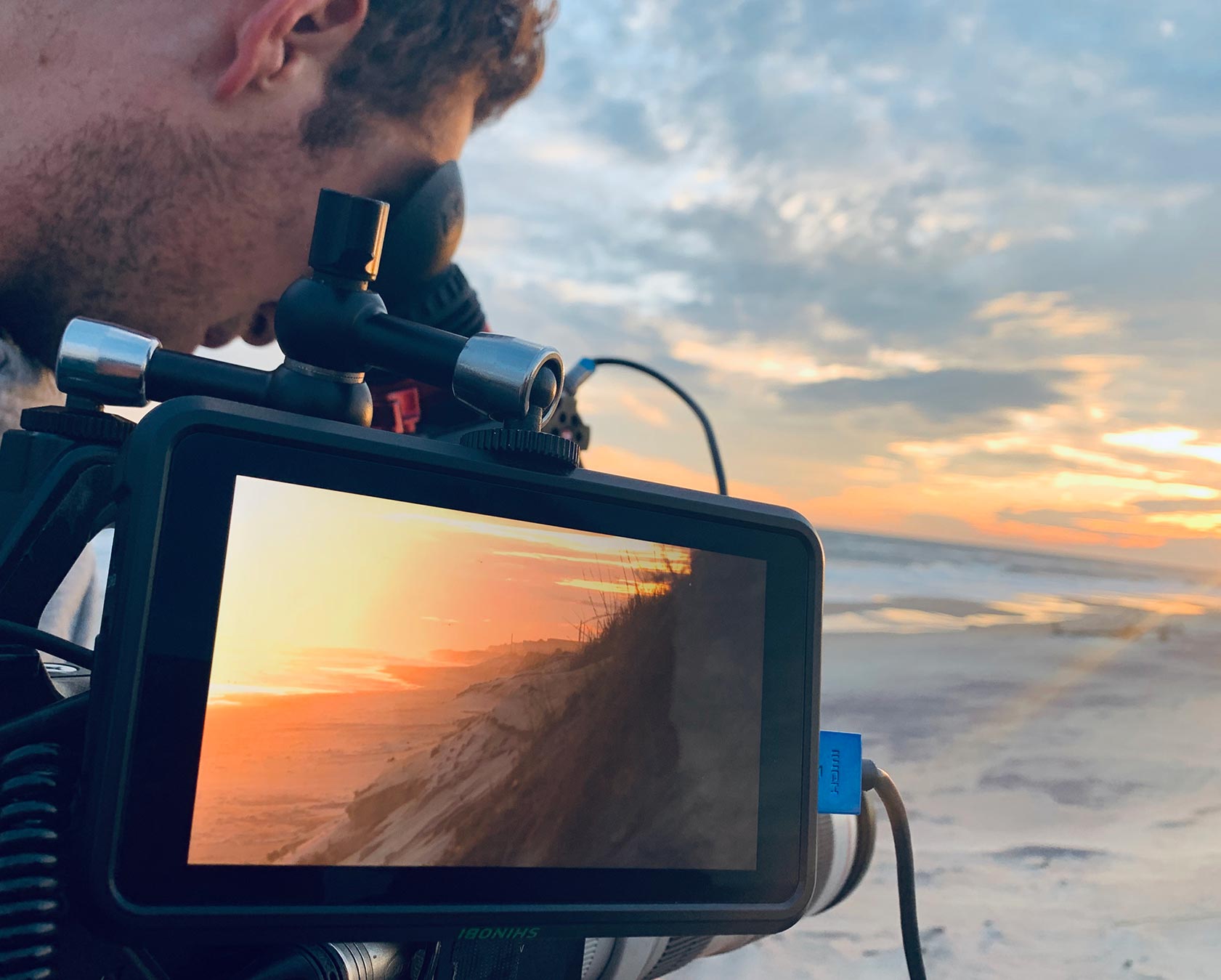
Sunset filming in North Carolina

Atmos in the Grand Tetons
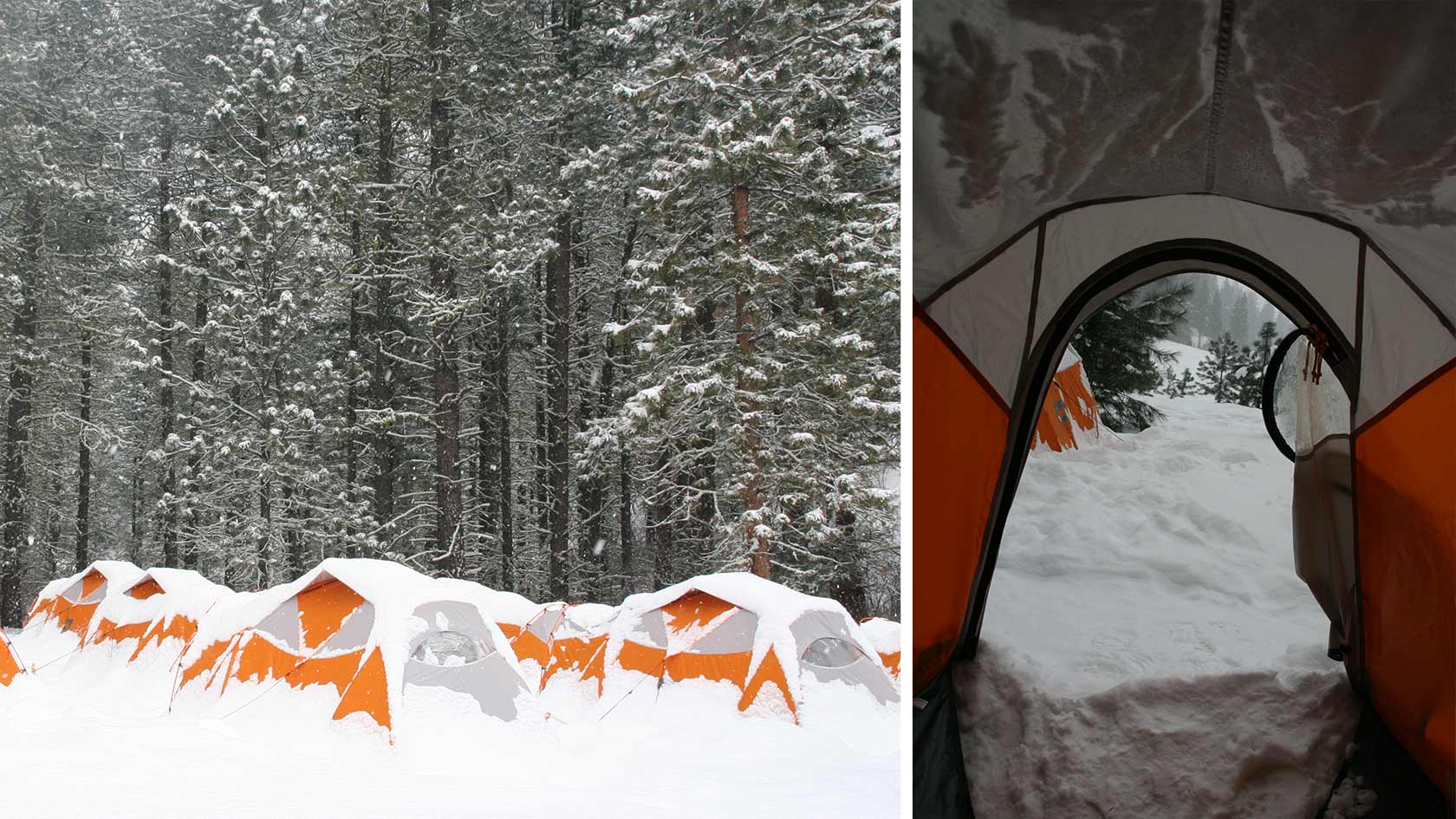
A snowy expedition...
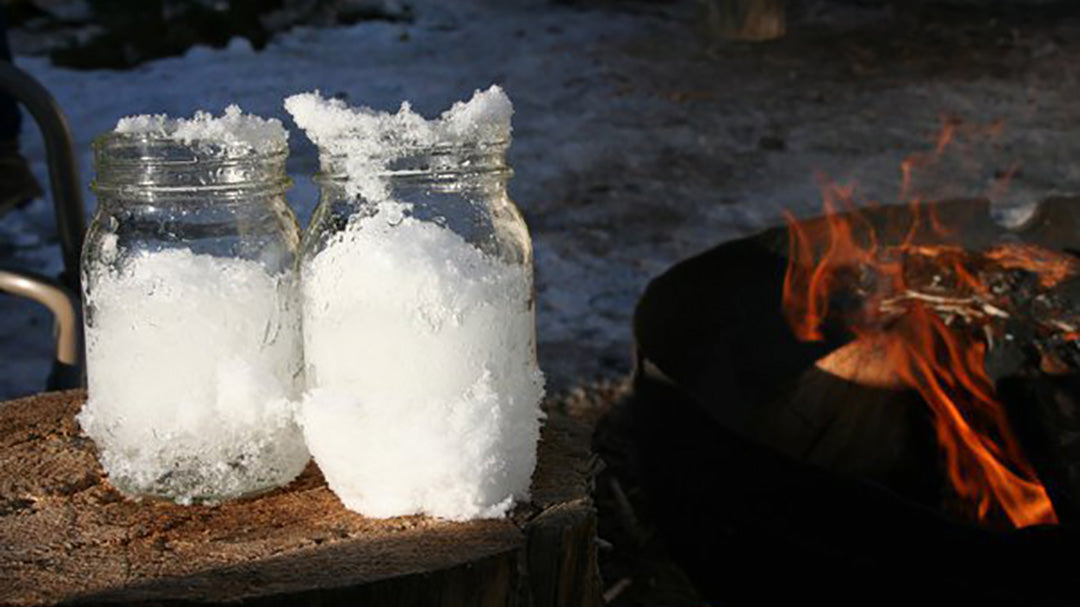
Snowy drink at the end of a long day’s filming in Washington State. Cheers Bubblebee!

Recording music in fields

A Kenyan greeting from Samburu elephants
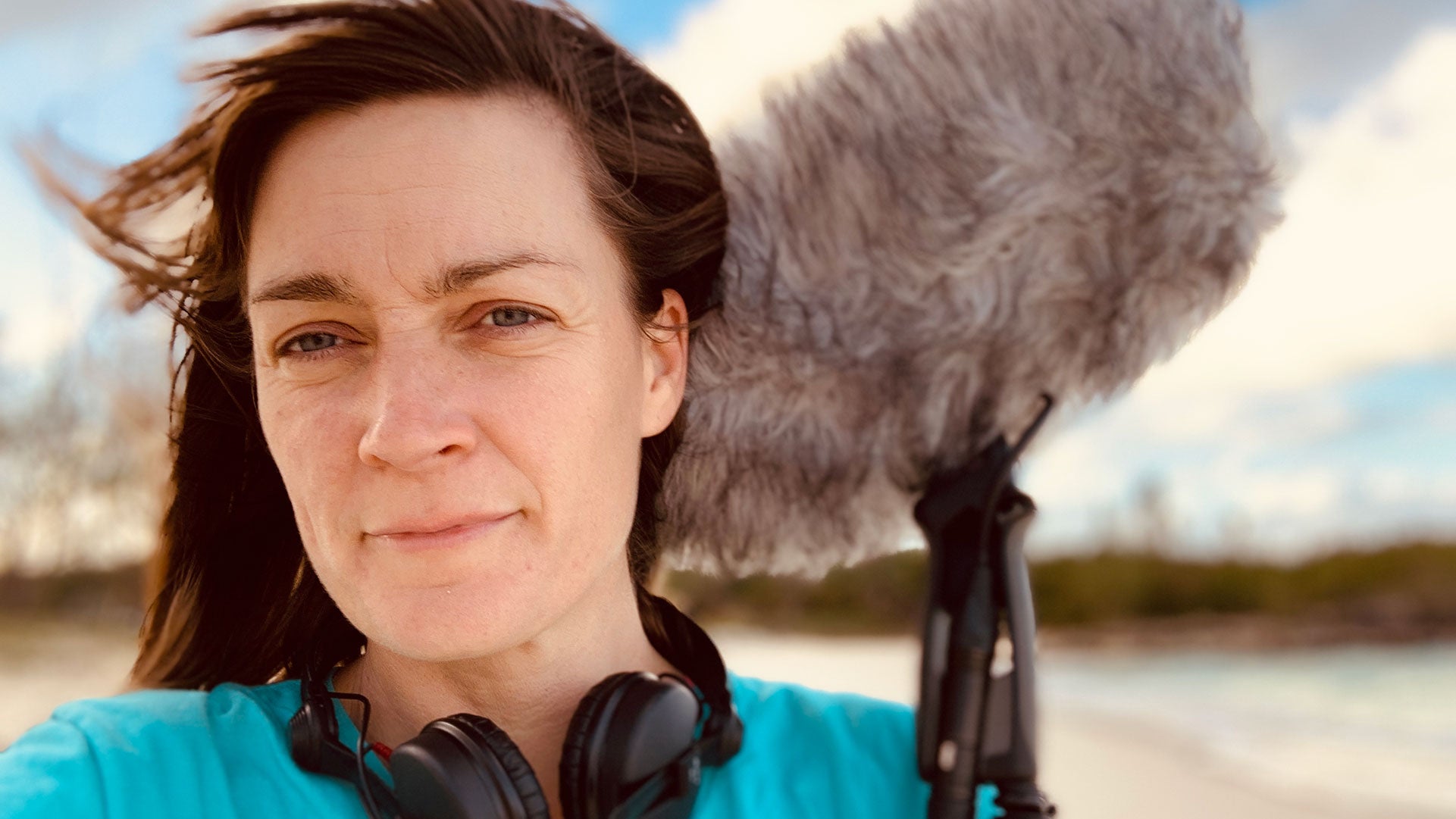
Ellie Williams - Sound Recordist
Huge thanks to Ellie for sharing her story with us. Check out her AMPS profile here and follow her on Instagram here.
